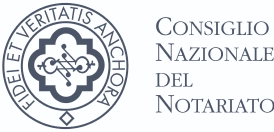Legacy
Legacy
As a Foundation, we promote and support as many projects as possible dedicated to the growth and education of young people, especially those who, for social or economic reasons, have few opportunities to plan their future. We try to accompany them for a stretch of the road.
Why make a will
Leaving a will means leaving a mark, a bond of continuity with the future, but it can also become a gesture of solidarity towards those who need to be supported. A legacy to our Foundation is an undertaking that goes in this direction, a gift that will help us support projects for minors, young people and families, Italian or immigrant.
The two types of will most frequently used are:
| Holographic will | Public will |
|---|---|
| It is the simplest form and does not require the intervention of either a notary or witnesses. It must be written entirely by hand by the person who makes the will (testator) and must collect the wishes expressed freely, without particular formulas (see art. 602 c.c. “The holographic will must be written in full, dated and signed by the hand of the testator”) and without using electronic or mechanical means of writing, nor the aid of third parties, not even for the drafting of a single word. Obviously, given its importance, this document must be kept in a safe place, preferably entrusted to a notary or a person of trust. | The public will is drawn up by a notary in the presence of two witnesses. The person who makes the will does not write anything but declares, in the presence of the witnesses, his or her wishes to the notary, who puts them in writing using legally correct and unambiguous expressions. The will is kept by the notary himself at his offices and can be modified by the testator at any time. |
Freedom to make a will
According to the law in place in our country, the testator can dispose of only part of his or her patrimony in case there are subjects defined as “legitimate” such as children (including adoptive ones) or their descendants, the spouse or the subject civilly united and, in the absence of descendants, the legitimate ascendants (parents and grandparents); this quota of inheritance is defined as “unavailable, legitimate or reserve”. It is however always possible for the testator to dispose freely of a quota of his or her patrimony (the so-called “available”) without affecting in any way the rights to succession of his or her loved ones. If, at the time of death, no relatives within the 6th degree or beneficiaries (through the will) are identified, the inheritance is acquired by the State.
An example of inheritance
In the will, our Foundation can be the recipient of a legacy, i.e. a disposition for a particular title, writing for example: “I leave to the Fondazione Don Gino Rigoldi with legal headquarters in via Luigi Mengoni 3 in Milan, the sum of euro … or the property located in … or the asset …”. In this way, our Foundation becomes directly legatee.
Or our Foundation can be named heir, writing for example: “I name my universal heir (or for a quota of …) the Fondazione Don Gino Rigoldi with legal headquarters in via Luigi Mengoni 3 in Milan”. In this way, our Foundation becomes heir.
FAQ – Frequently Asked Questions
Making a will is a gesture of generosity projected towards the future that leaves an important mark for those who do it and in those who receive it.
Everyone can dispose of their own assets with a will, except for those who at the time of drafting the will were incapable of understanding and willing, minors and interdicted for mental illness. In such cases, the will eventually drawn up can be annulled at the request of the person who has an interest in it. A person who, due to physical problems, is unable to write or sign, on the other hand, can make a will in public form, going to a notary.
Yes. The specific assets or the quota of the patrimony expressly indicated in the will will be devolved to the subjects identified by the testator, according to the so-called “testamentary succession”. The remaining patrimony, if any, will go to the legitimate heirs according to the provisions of law that regulate the so-called “legitimate succession”.
In the absence of a will, the patrimony is divided among the heirs according to the quotas due, as provided by the civil code. The relatives who inherit by law are: spouse or subject civilly united, children, brothers (if the children are missing), ascendants (if the children are missing) or other relatives within the 6th degree (only if unique heirs).
Yes, whatever family situation you have, it is always possible to allocate a part of your inheritance, the so-called “available quota”, to different subjects. However, the so-called “legitimaries” cannot be excluded from the succession: the spouse or the subject civilly united, the children (in case of their predecease, the children of the children), and the legitimate parents in case of absence of the children. They always have the right to a quota of inheritance, the so-called “legitimate quota” or unavailable quota.
Not necessarily. The holographic will can be drawn up by anyone who wishes and is able to write. It will be necessary to go to the notary in case you intend or have to draw up a public will.
Legitimate heirs are those to whom the inheritance is due in the absence of a will (spouse or subject civilly united, children and relatives within the sixth degree). Legitimaries are those who, in the presence of a will, still have the right to a quota that protects them by virtue of very close kinship.
Yes. The premium of the life insurance does not belong to the hereditary patrimony and can be destined to a non-profit organization like Fondazione Don Gino Rigoldi.
It is always possible to modify one’s wishes. You can also replace a holographic will with a public one and viceversa. In case you want to radically change your will, it is good to write “I revoke all my previous testamentary dispositions” or “this will replaces and cancels the previous ones and in particular the will drawn up on …”. If, on the other hand, it is a matter of modest variations or integrations, it is good to write “as an integration (or partial modification) of what I have disposed of on …”.
The funds collected thanks to the legacies are particularly valuable because they go to the aid of young people, wherever the need is most urgent. As for the properties, if they are suitable for carrying out its institutional activities, our Foundation will use them directly, alternatively, it will sell them to finance its projects for children.
Download material
With the Patronage and collaboration of the National Council of Notaries


